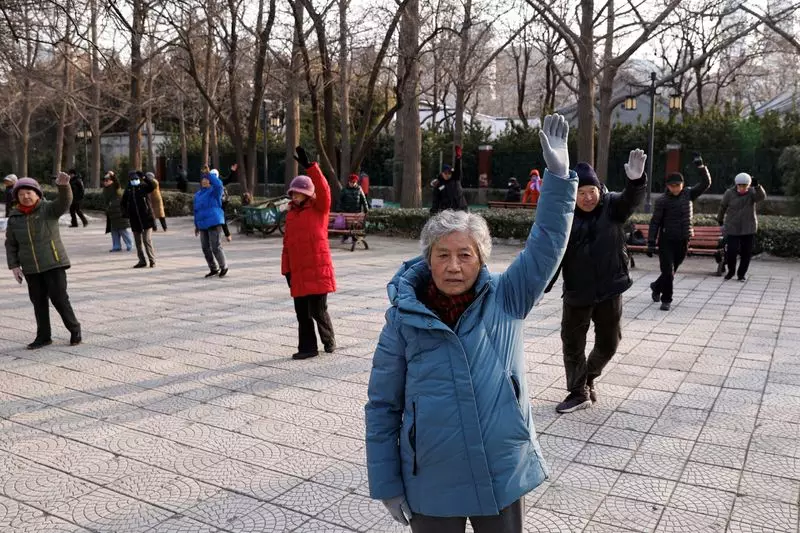The policymakers in China are currently evaluating a proposal to increase the retirement age in the country, which is currently one of the lowest in the world. The discussions took place during the 11th meeting of China’s Standing Committee in Beijing, highlighting the gravity of the situation. This move is seen as a crucial step in addressing the issue of a dwindling workforce and its implications on the economy.
China’s current retirement age of 60 for men and even lower for women has been deemed unsustainable given the rising life expectancy in the country. With life expectancy projected to exceed 80 years by 2050, the retirement age needs to be adjusted to accommodate the changing demographics. This adjustment is necessary to ensure the long-term sustainability of the pension system and to alleviate the strain on social security budgets.
The declining birth rate and aging population in China have exacerbated the challenges associated with the retirement age. The number of retirees is increasing rapidly, while the working-age population is decreasing, leading to a skewed ratio of retirees to workers. This puts immense pressure on the pension system, with each retiree currently being supported by significantly fewer workers compared to a decade ago.
Several provinces in China are already facing pension budget deficits, with eleven out of 31 provincial-level jurisdictions experiencing financial strain. The imbalance between retirees and workers is expected to worsen in the coming years, with projections indicating a significant shortfall in funds by 2035. The sustainability of the pension system is at risk if immediate action is not taken to address the issue.
The proposal to increase the retirement age in China is a necessary step to adapt to the changing demographic landscape and ensure the stability of the pension system. By aligning the retirement age with increasing life expectancy and addressing the challenges of an aging population, China can navigate the economic implications of a shrinking workforce. It is imperative for policymakers to implement reforms that will safeguard the long-term financial well-being of retirees and support sustainable economic growth in the future.

